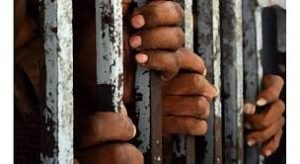Sadia Qasim Shah
PESHAWAR: A number of girls get admission in journalism department of University of Peshawar every year but very few of them join the profession owning to lack of parental support and socio-cultural constraints.
“Sometimes family doesn’t allow but most of the time girls don’t have the courage to join the field of journalism owing to work hazards,” Inamur Rehman, a teacher, told a counselling session.The session was held at University of Peshawar with the girl students of the journalism and mass communication (JMC) department, their parents and teachers. Around 16 girl students took part in the session but very few parents turned up.
The counseling session was organised by Uks Research Centre, a research and publication centre which focuses on women and media relations.
Mr Rehman said that teachers encouraged girl students as there were many openings for women journalists but it seemed that they were too scared to break the socio-cultural barriers and come forward.
Naeem Gul, a senior teacher of the department, also spoke about the role girl students could play as a journalist in breaking the stereo-type roles assigned to women in social life. He said that the change would come only when more women in media were visible.
Some parents, who were present at the session, said that though they might not have taken much interest in getting their daughters admitted to JMC department yet unlike other parents they wanted their daughters to pursue their career in journalism.
They, however, admitted that like many parents they feared for their daughters’ security if they joined a challenging profession like journalism.
The participants said that there were very few women journalists in Khyber Pakhtunkhwa although every year a considerable number of girl students graduated from JMC department of UoP.
A number of girl students said that parents should learn to trust their daughters. They should treat them equally like their sons so that they had confidence and join such active fields like journalism, they added.
“Mothers constantly tell their daughters to behave in a careful manner that instils fear in them. They lack confidence that’s why they can’t take up challenging profession like journalism,” said Hina Akbar, a student.
Samar, a final year student, said that with family support girls could achieve anything but unfortunately the society kept an eye on working women and suspected their activities. “Such conservative thinking is very discouraging for the girls, who want to work,” she added.
Wafa Pervez, another student, said that there were many problems but if parents gave confidence to their daughters, they would not hesitate to join such fields.
Tasneem Ahmer, head of Uks, said that they had held such interactive sessions at a number of universities in the country and many students mentioned absence of separate work spaces for men and women employees, late working hours, inadequate transport services, less attractive salary packages for women and employment on reference rather than merit the main reasons for their inability to pursue careers in media.
“How to convince protective and conservative parents to allow them (girls) to join media is a big question,” she said.“It is an ongoing process where affirmative actions will need to be taken time and again to find solutions to the challenges and constraints that women may encounter in the journey to ‘more women in media,” said Ms Ahmer.


